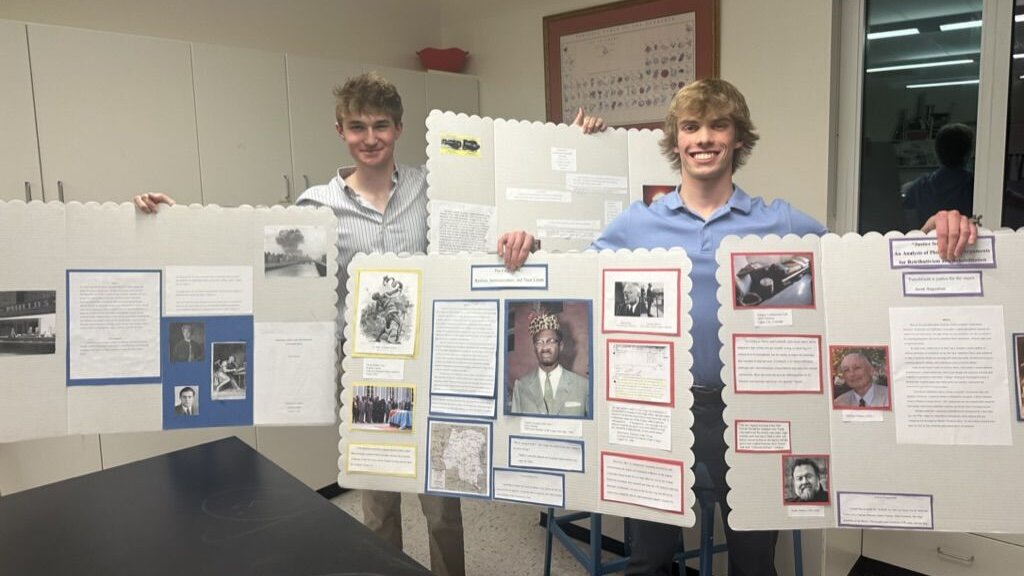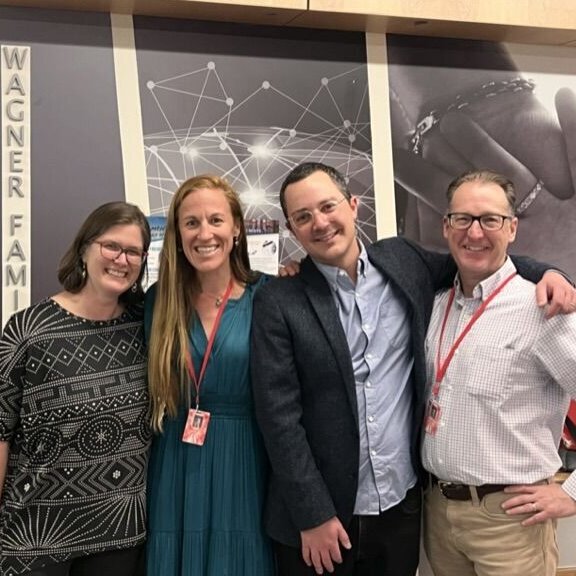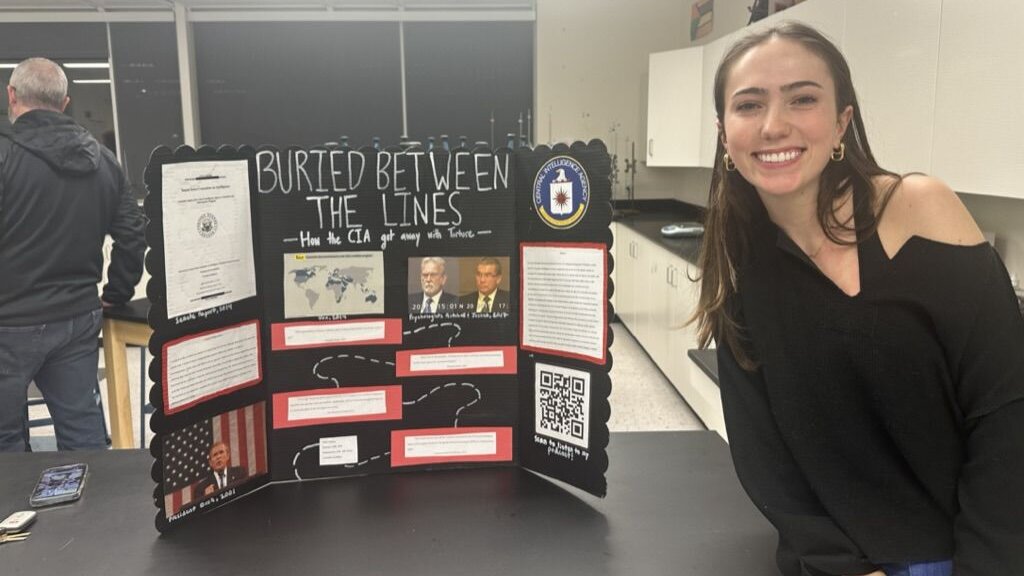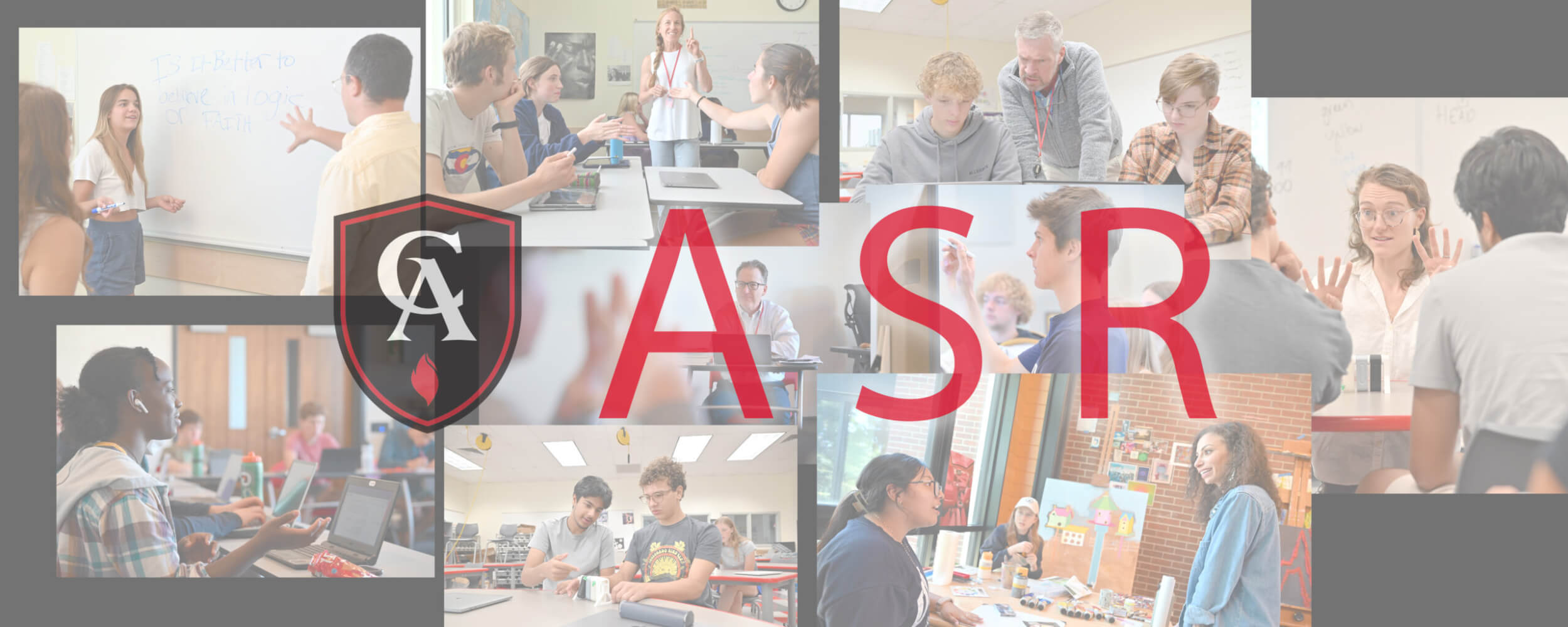This past Tuesday night was an inspirational night at Colorado Academy! Students enrolled in our Advanced Studies and Research (ASR) classes took over the Upper School classrooms and presented the amazing work they have done for the ASR classes in Contemporary Literature of Israel, Palestine, and Lebanon; Philosophy and Literature; International Gender Movements; and Superpowers: China, Russia, and the United States in the Modern World.
This year, CA moved away from the Advanced Placement curriculum in the humanities and social studies. We found it limiting and we did not offer many courses. (We will continue to have AP curriculum in the STEM fields as those offerings are still valuable). The move to ASR allowed us to expand the rigor and diversity of advanced classes. These classes are intended to get students to do deeper thinking and research. Aside from the ASR courses mentioned above, we also offer Computer Science Principles, Robotics, AI and Machine Learning, Economics in Theory and Practice, The History and Culture of Mexico, The History of Ideas and Inventions, Senior Portfolio, and Music Theory. I am excited that the program is growing and that there will be new offerings next year.
The student presentations were impressive. With poster board presentations as well as copies of their research papers on hand, students gave individual presentations and answered questions from parents, fellow students, teachers, and administrators who came to the event.

I was blown away by how articulate our students were and how easily they demonstrated their expertise. When we moved away from APs in social studies and humanities, there was some concern that somehow it would hurt our students in the college process or potentially water down our curriculum. Clearly, the opposite is the case. ASR has raised the bar on rigor and created an avenue for students to push academic boundaries through unique research projects.
Here are some examples of the over 70 presentations:
- The Twisting Truth: Totalitarian Tendencies of Superpower States
- The Purpose of Men: An Analysis of the Modern Struggle Boys Face in Finding Identity
- Inescapable Threads: an Analysis of Determinism, Predestination, and Moral Responsibility
- On Truth: The Pursuit of the Highest Good
- Exploring the Middle East Through Art
- Black and Brown, One Shade Apart: A Comparative Analysis of Palestinian and Black American Struggles
- Stop Being Happy: A Theory of Infinite Desire
- Is Reason Enough or Is Faith Necessary? An Examination of Aquino and Descartes’ Proofs for God
- The Anomaly of Jerusalem: Navigating Peace in the Middle East
- The United States’s Comeback: How the US Won the Space Race from Behind
- A Letter to Xi Jinping: Exploring the Magnitude of Censorship Through the Lens of Free Speech
- Not Just Victims: How Women Experience and Influence the Israeli-Palestinian Conflict
- Cuban Exodus: The Political Legacy of Immigration in Florida’s Shift to the Right
- The American-Israeli Alliance: The Overlooked Initiative of the Truman Doctrine
- Seeing through Different Eyes: An Analysis of Subjectivity and Manipulations of Reality
I wish I had space to list them all. They were truly incredible. As I drove home, I was just so proud of what these students had accomplished.
The value of CA is our ability to be nimble and to have space for student creativity. I was particularly struck by the sophistication of these topics and our students’ ability to summarize all they had learned. Of particular note were the students in the Middle East Literature ASR. It is a timely subject, but also one that could be extremely loaded given the passions and unrest we have seen on college campuses. The students I talked to were so thoughtful in their dialogue and research even though some have very different opinions and interpretations about the war in Gaza. Institutions of learning succeed when we can have reasoned, evidence-based dialogue. I saw that on full display this week.

Moving to the ASR curriculum was a heavy lift and involved massive redesign or creation of courses. I want to give a shoutout to the teachers involved in mentoring these students: Liz Sarles, Emily Perez, Jon Vogels, and Ross Holland. This involves a different type of teaching; they inspire their students to challenge themselves in new ways.
I also want to thank our Upper School Librarian Allie Bronston for her support for the students. These courses truly teach students how to conduct high-level research that will undoubtedly serve them well in college and beyond. And, finally, I want to thank Sonia Arora for her efforts in helping us advance this program in the Upper School.
The motivation for this program came from our strategic plan in which we wanted to provide deeper and more immersive learning experiences for our students. It was great to see the goals of our plan in action and witness the deeper learning that resulted.

